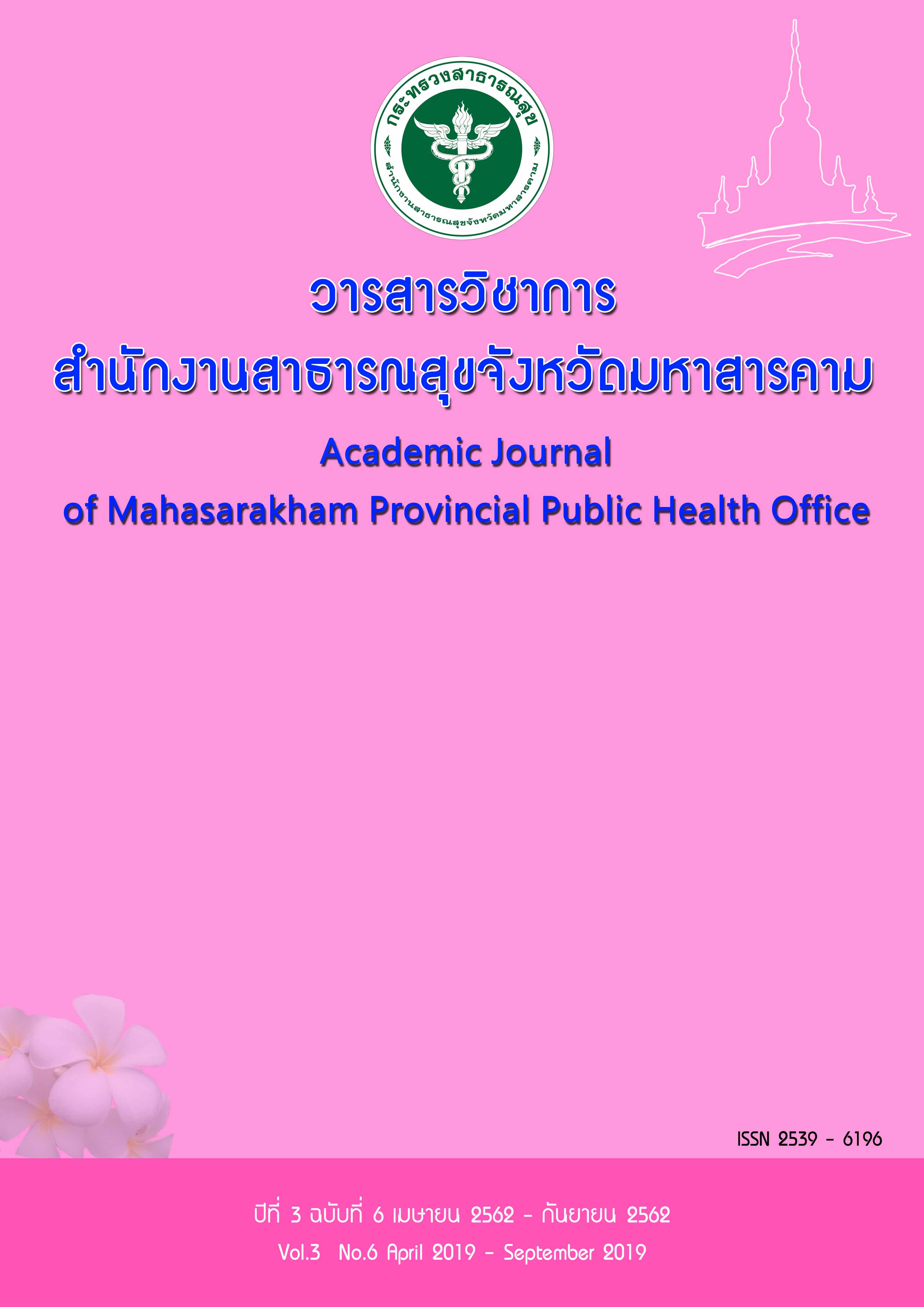พฤติกรรมสุขภาพของผู้สูงอายุที่ผ่านการอบรมหลักสูตรการดูแลตนเองของผู้สูงอายุสภากาชาดไทย Health Behaviors of the Elderly after Self-care Curriculum Training of the Thai Red Cross Society
Abstract
Abstract
This descriptive research aimed to 1) evaluate health knowledge of the elderly, good attitude toward being on the elderly, health behaviors and satisfaction on the elderly training 2) compare health behaviors and health outcomes of the elderly who had different personal characteristics 3) study factors related among satisfaction on the elderly training health behaviors health knowledge of the elderly and health outcomes 4) study the predictive factors include satisfaction on the elderly training, health knowledge, good attitude toward being on the elderly and health behaviors that influence on health outcomes. Simple random sampling method was performed to recruit 251 elderly who participated in the self – care training curriculum of the Thai Red Cross Society in 2017.The study were collected from August 2018 to September 2018 using questionnaires with a value of 0.97. The coefficient of confidence were 0.81, 0.82, 0.95 consisting of attitude, health behaviors and satisfaction questionnaires respectively with Cronbach's alpha coefficient. Knowledge of the elderly and accidental was 0.6 with KR-20. Data analysis included descriptive statistics, analysis of Variance, Pearson product-moment correlation coefficient and stepwise multiple regression analysis, statistically significantly. (p<0.05)
Study results 1) the elderly had health knowledge, attitude toward being on the elderly were good level. For overall health behaviors and accidental prevention and drug using were excellent levels. Consumer’s behaviors, physical activity, emotional control and self-regulation were good levels. Satisfaction on the elderly training was excellent levels. 2) the elderly who had different sex, education, underlying diseases, body weight, height, and blood pressure caused the difference health behaviors and health outcomes were statistically significantly. (p<0.05) 3) satisfaction on the elderly training and health behaviors had relation, waist circumference and body mass index had relation statistically significantly (p<0.01). 4) Factor affecting to health outcomes include physical activity predictive waist circumference in the elderly were statistically significantly. (p<0.05) (Beta=-.208) They could explain 12.80% (R2=.128) Study results suggest that should develop that curriculum to focus on health behaviors, skills exercise in order for the participants to actually practice included control waist circumference and body mass index in appropriated.
Keywords : health behavior, self – care training curriculum, elderly people, The Thai Red Cross Society


